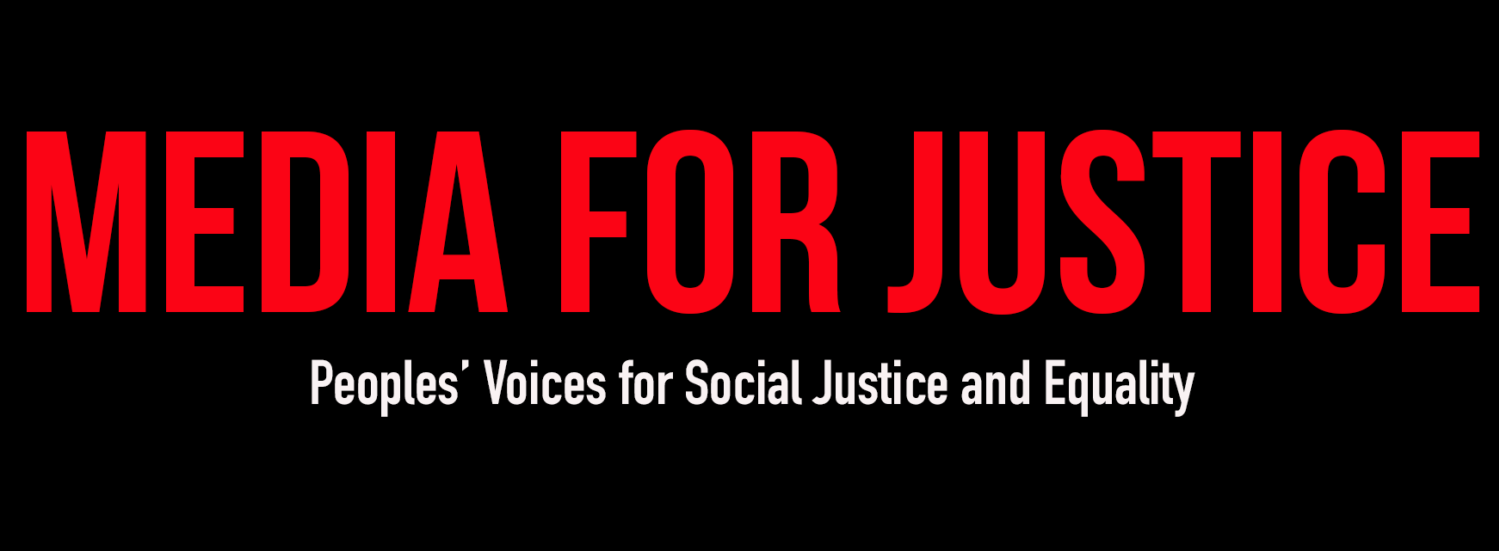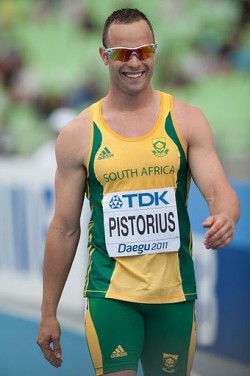By: Sheena St. Clair Jonker
Photo courtesy of Wikipedia
There is much anger and disappointment at the verdict in the Oscar Pistorius Trial. Personally, I am amazed at the amazement especially in legal circles.
During the state case, I was working from home after surgery, and I watched the entire State case. (I also watched much of the defence case, but not all of it) At the end of the state case, I felt certain that it had not done enough to prove intention beyond a reasonable doubt.
There is much talk in legal circles about dolus eventualis as well as putative private defence. It looks to almost everyone on earth (including myself) that with four bullets in the door of a tiny cubicle that Oscar intended to kill whomever was behind the door. Dolus Eventualis is a form of indirect or reckless intention, where one foresees certain consequences, and acts in a way that reconciles oneself to those consequences. It seems obvious to anyone that that is exactly what Oscar did.
It also seems obvious that if a he raises the defence of putatative self-defence, then he must have intended to kill the unknown intruder, or at least reconciled himself with this consequence, albeit in defence of his own life (and Reeva’s, on his version)
The problem is, so much confusion was created by Oscar himself. As the judge said his testimony seemed to contradict his own defence of putative self-defence. His testimony is full of statements like “I didn’t have time to think”. Furthermore, it doesn’t appear to be his version that he intended to kill, or reconciled himself with killing whomever was behind the door. No matter how much it may be the truth that he indeed intended to kill, the confusion created by Oscar himself compounded by the inadequacies of state evidence and the multitude of contradictions of state witnesses, it at the very least, raises a reasonable doubt as to what was in his head at the time. There was simply not enough done by the state to gainsay what he says was in his head at the time. And if what he said he was thinking/or not thinking at the time could be reasonably possibly true, then the Judge acted within the law to declare him not guilty on pre-meditated murder or murder.
I don’t for one minute doubt, that another court could find differently. With all the legal opinion weighing in on the argument in the press, there are many ways to argue this.
My view remains that the State did not discharge the heavy burden of beyond a reasonable doubt.
In the adversarial system , and more specifically the accusatorial system which is the nature of our criminal justice system, facts can literally be the enemy of truth.
That seems crazy. But it’s true. The system is based in competition. There are rules of engagement which must be adhered to. These are called the law of evidence. Ours is an artificial system of evidence rather than a free system. This means that there are several rules guiding what evidence is admissible. Therefore each side can raise objections to the evidence of the other side on various bases. This system was originally created for jury systems, to protect the minds of lay persons. Judicial systems were always meant to have free systems of evidence where testimony is freely lead, freely told and the judicial officer, schooled in the law, must apply his or her mind to the entire body of evidence and make an ultimate call on what does and does not add up.
My view is that our application of an artificial system of evidence to a judicial system is erroneous and supports the commonplace injustices that emerge from court process. But that’s a big subject and for another time.
The artificial system of evidence is susceptible to tactical games playing, and muting and even shutting down of authentic narratives. It is also susceptible to delays borne out of trials-within-trials to decide technical and procedural points like admissibility of evidence, compellability of witnesses and the like.
What happened in Oscar’s trial is how the system is designed to operate: the accused is presumed innocent until proven guilty, does not have to prove his innocence, but can test the state case to see if it is strong enough to prove guilt beyond a reasonable doubt, all the while simply advancing a version that may possibly fit with often compromised forensics. Compromised forensics in themselves are often enough to raise the requisite reasonable doubt, which is the only burden the defence has, to raise a reasonable doubt.
So in this system if you can pay for brilliant lawyers, this is often how things look. And within our legal framework, this is not unjust. But if one applies philosophies of natural justice, it is unjust. And it is not dissimilar all over the world and in other systems. The entire system operates on what facts can actually be established (proved) in court. And this often rails against the truth.
South Africans beat themselves up wanting to see “justice” in court. The truth is, a competitive adversarial system is just not the best platform for truth and justice. The truth may emerge, it may not. Sometimes it does. Sometimes it doesn’t. And ultimately it is dependent on which side has the best lawyers and that is dependent on who can afford the best lawyers.
Broadcasting trials of this nature to the public is problematic in the sense that the public does not understand the law. It takes a very long time to understand the law. It takes an average of 7 years of study and internship just to get into practice. It takes even longer than that to actually grasp the law. So certain aspects of broadcasting this stuff, are in my view, unhelpful. South Africans are unnecessarily angered and given a platform to lambast the system and its stewards.
But it’s not all bad, it gives individuals like myself that advocate for Alternative Dispute Resolution and Restorative Justice a platform to highlight the deficiencies of this system. The system is a poor attempt at cure. It is a form of redemptive violence. At best it is a cheap band aid. At worst it is an assault rifle with the capacity to further injure the already injured. And that injures all of us. We must understand that.
On Friday, an attorney for The Access to Justice Association of Southern Africa attend a regional court to represent twelve accused in a bail application. They have been in jail for two weeks already. They were arrested in a scuffle with police at Marikana, Cape Town which ensued when police came to evict them from their shacks which were subsequently destroyed with everything in them. They had the audacity to demand sight of a court order which could not be produced. In the flare up in defence of their homes, they were arrested. Those that had jobs, have now lost them. On Friday the state opposed bail on the basis that they had allegedly attempted to escape. They deny this and are convinced video footage will exonerate them. The problem is the court would not order that video footage be viewed then. They will remain in custody for another week. In those seven days, they will suffer further injury, further impoverishment. They are all fathers. Their families no longer have homes, or incomes.
I actually have no words to describe what I feel, except that I am a proponent of non-violence. I am frequently called in to bring about peace and stability where there is unrest. I frequently counsel communities out of uprising. But this. I question my stance every day.
But we should not be surprised. Inconsolable yes. But not surprised.
The system within which Oscar was vindicated of murder, is the same system that injures the already injured. And causes further destruction to the already disempowered.
South Africa, stop beating yourself up about this. You are not going to get what you want in this system.
The law and justice are not the same thing. One is about the application of human-made rules. The other is about restoring things to how they should be. It is time that we allow ourselves to re-imagine constructs that steward justice, ecomomics and social well-being. And oce re-imagined, act.
We can’t keep trying to answer the problem of violence with violent systems and expect that we will achieve anything.
So what are the alternatives? I will start unpacking some alternatives, the way I see them, with particular relation to the Oscar matter over the next few weeks, but with the broader intention of seeking alternatives that bring restoration to people in general, mostly those how are currently disabled under a system that favours the economically empowered.
Sheena St. Clair Jonker is founder of ADR Network SA and the Access to Justice Association of Southern Africa
sheena@accesstojustice.co.za

